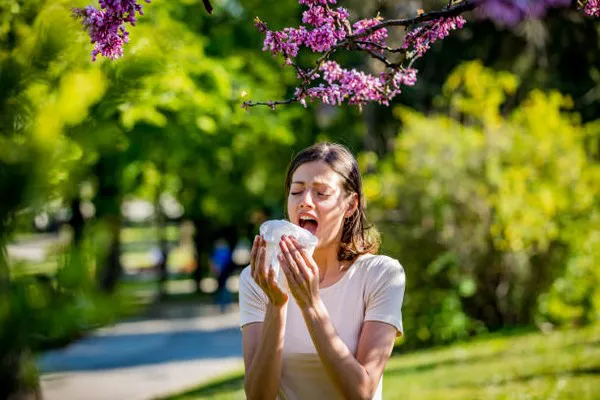As spring unfolds across the United States, allergy sufferers are bracing for a challenging season ahead, with AccuWeather meteorologists predicting three peaks in pollen levels. Here’s what to expect:
Tree Pollen:
Trees and plants are budding earlier than usual, up to three weeks ahead of schedule in areas from New Jersey to Colorado.
Warmer conditions in the mid-Atlantic and Northeast will accelerate the onset of the tree pollen season, with cities like
New York City and Philadelphia likely to experience higher-than-average pollen levels.
While the Southeast may see a less intense tree pollen season, it could persist longer than in previous years.
The northern Plains and Pacific Northwest may escape the worst of tree pollen initially, but other allergens may pose challenges later in the year.
Grass Pollen:
As spring transitions to summer, grass pollen becomes a primary concern, particularly in the interior Northeast and Midwest.
Independence Day could coincide with peak grass pollen levels, affecting millions of people spending time outdoors for festivities.
Some relief from grass pollen may be seen along the Atlantic coast in July and August due to decreased rainfall.
Grass pollen levels are expected to be near or below historical averages in most of the Plains, Rocky Mountains, and Southwest.
Weed Pollen:
A hyperactive weed pollen season is forecasted for the second half of summer, affecting more than two dozen states.
Widespread warmth will contribute to increased weed pollen levels, particularly in areas already experiencing high tree and grass pollen.
Moisture surges in the Pacific Northwest, northern Rockies, and northern Plains will exacerbate weed pollen concerns.
Worst Cities for Allergies:
The Asthma and Allergy Foundation of America (AAFA) identifies Wichita, Kansas, as the top city for allergies in 2024, followed by Virginia Beach, Greenville, Dallas, and Oklahoma City.
Factors contributing to high allergy conditions include elevated tree and grass pollen levels, increased medication usage, and limited access to allergy specialists.
Expert Tips to Manage Allergies:
Take allergy medication preemptively before symptoms worsen.
Limit outdoor activities during late morning and afternoon hours when pollen counts are highest.
Use air conditioning to reduce indoor pollen exposure on high pollen days.
Consult with a doctor or allergist if over-the-counter medications are ineffective, and consider allergy testing for personalized treatment options.
As allergy season progresses, staying informed and implementing proactive measures can help alleviate symptoms and improve overall well-being for allergy sufferers nationwide.


